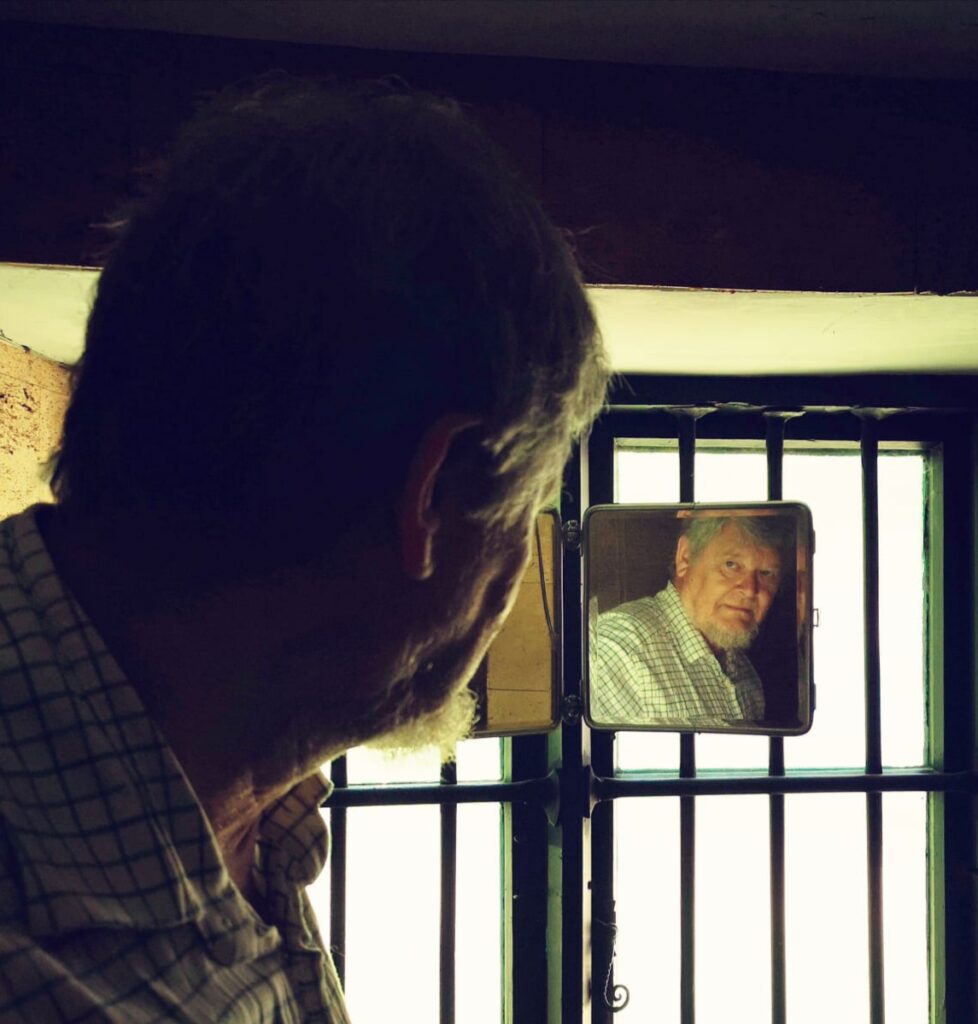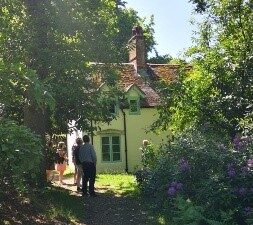2 June 2022
OU PHRONTIS
by J.R.Thomas

If you read a newspaper, watch the TV news, or participate in social media, you will worry; guaranteed. The government is collapsing; wokeism is sending us mad; war will soon enter a nuclear phase (with the Chinese version over Taiwan following along shortly); the planet is burning up; inflation is raging; viruses abound and if the last one did not get us, the next one surely will. How much more can you take?
But OU PHRONTIS. Or if your classical Greek is a little rusty, WHY WORRY? Your correspondent, on leave from the rigours of the Shaw Sheet newsroom, has been catching up on a few things put aside for more leisurely times. And, not one to avoid currying favour with the Editor, and being down in Dorset, it was compulsory to pay a visit to Clouds Hill, the humble isolated cottage which was home to Lawrence of Arabia, better known locally as T.E. Shaw, the extraordinary man after whom this periodical takes its name. Few days are as inspirational as this one turned out; a visit to a remote church containing one of the greatest artistic endeavours of the twentieth century, by Laurence Whistler; two hours at Clouds Hill; and then a film about Lawrence MacEwen, of Muck (read on for an explanation). Three extraordinary men who lived life in their own ways and all of whom would say: “Why Worry?” which as OU PHRONTIS is carved over Clouds Hill’s front door.
Thomas Edward Shaw was not Lawrence’s real name of course. Nor was “John Hume Ross”, under which he had enlisted in the RAF as he hid from the rigours of fame which followed on from his exploits in the Arabian desert in the First World War and his writing of The Seven Pillars of Wisdom. That pseudonym was exposed in the RAF and he was forced out, only to eventually re-enroll as Shaw.
Lawrence was technically born Thomas Edward Chapman, the illegitimate son of an Irish baronet and his children’s nanny, who set up home in Wales under her surname. He was an exceedingly bright child, brought up in straited circumstances, graduating from Oxford as an archaeologist, then joining the army in 1914 after the outbreak of war. His command of languages and love of the Arab lifestyle soon made him an advisor to the leading Arab rebels against the Turks, and effectively Britain’s man in the Middle East. Within four years he was promoted to full colonel and involved in trying to create a permanent settlement between Arabs, Turks, Brits and French. Almost inevitably Lawrence’s advice was mostly ignored as outsiders with specialist knowledge so often are; he resigned his commission to become a writer, and went to live at Clouds Hill. He joined the Royal Tank Regiment but in 1925 he rejoined the Royal Air Force in the most humble rank, Aircraftsman, partly for anonymity, partly so he could learn about the RAF. After various postings he ended up stationed in Dorset, finally retiring in 1935 to finish the book he was writing to celebrate the RAF. His retirement was bitterly short, he was killed in a motorcycle accident near his cottage a few weeks after; he was 46.
Lawrence was a man of strong character and great individuality. He turned his mind to problems and devised his own solutions. On the domestic front that involved at Clouds Hill, a cottage with no kitchen (he was not interested in food and mostly ate at the RAF base), designed leather sleeping bags marked Meum and Tuum, a complex system of plumbing which jhe installed so that he could enjoy hot baths and cold daily outdoor plunges, a special chair for reading, a gramophone with a leather trumpet for softer tones, and a wonderful spring garden (alas now mostly gone after being overrun with rhododendron ponticum). He entertained many well-known figures of the time; those invited to stay the night were fed bread and cheese, the latter stored in the aluminium foil lined bedroom in which they would sleep (the atmosphere being perfect for keeping cheese, if not guests) or tinned baked beans (allegedly). The conversation though was extraordinary and for all his urge to hide from fame he was a revered figure, host, and guest. He was a vegetarian, a teetotaller, probably asexual, a gifted mechanic (his RAF job), and a talented photographer. The Seven Pillars of Wisdom, his first and best known book, is a great work, one of the most vivid and realistic descriptions of warfare. And of course he was a soldier and an Arabist of great linguistic abilities.
The Seven Pillars of Wisdom made his name; it was regarded as heavily fictionalised but subsequent research suggests it is mostly, probably entirely, true. But for an intensely private man who became through his book and a film about his exploits in Arabia hugely well known, it became a trial and a burden. To make an income he needed publicity; to survive as a man he craved privacy. How his life might have resolved itself we of course cannot know; but it was a life well lived; as Lawrence MacEwen said “a good life and a quick death”.
Shaw is buried nearby in the graveyard at Moreton, where many pay homage at his grave. He did not want that; his mother insisted on a marked grave which he expressly had forbidden. So, if you go to Clouds Hill, now National Trust, go to Moreton, but go into the village church. This contains the best collection of etched glass in the country, probably in the world, all executed by that master craftsman Laurence Whistler. Whistler we have not space to cover here but he too was immensely talented and highly individualistic. Not only did he take glass etching to a completely new level, but he was also a brilliant artist and architectural historian. His privately published book on the architectural works of John Vanbrugh is the best and last word on the subject, with fine illustrations of the master’s great houses (Seaton Delaval, Castle Howard, Blenheim Palace, and more).
And finally in our pantheon of fine rugged individualists, Laurence MacEwen, laird of the Scottish island of Muck, one of the Inner Hebrides. He alas died two weeks ago, aged 81, but available on BBC iPlayer is Cindy Jansen’s remarkable recent film of his old age and history. MacEwen was a farmer who manged to hang onto his island of 1,500 acres and about 35 inhabitants after his family wanted to sell it in the 1960’s by being blxxxy awkward and doing things his way. No laird he; an old fashioned cantankerous lovable herdsman who put his fellow islanders and his cows first, and made the place thrive without much tourism; a proper highland island community. In the spirit of TE Lawrence, he did things his own way. It is good to know his son seems to be made of the same stuff.
There is another reason for our tribute to Aircraftsman Shaw and his spirit. This May was the Shaw Sheet’s seventh anniversary, first leaping off the press in 2015; thank you to all those who make it possible and in particular to our editor John Watson who founded it, inspired by TE, and nurtures patiently his crew of more or less rugged individualists!


